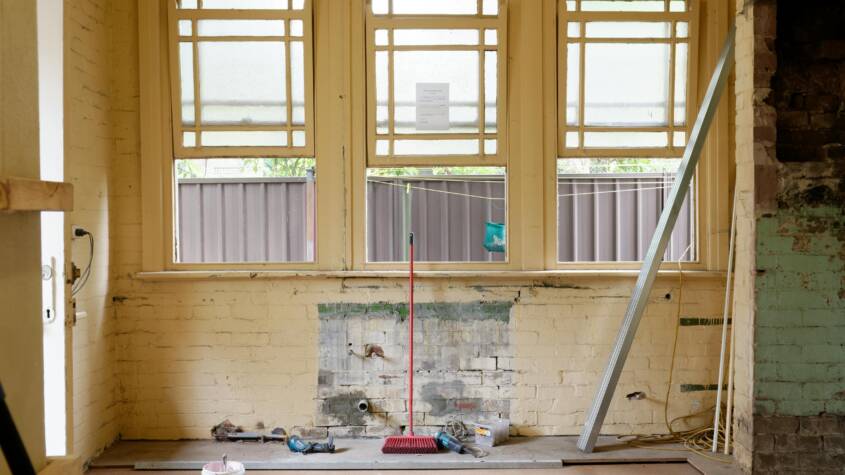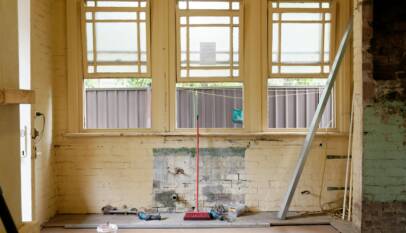
Renovation contractors play a crucial role in transforming spaces, whether it’s updating a kitchen or adding a room. They bring expertise, project management skills, and access to a network of reliable suppliers and subcontractors. Choosing the right contractor can greatly influence the success of a renovation project.
Engaging a knowledgeable contractor ensures that the renovation aligns with the homeowner’s vision while staying within budget and timeline. They handle all aspects, from obtaining permits to managing labor and materials, which can alleviate significant stress for homeowners. Understanding the value they provide is essential for anyone considering a home renovation.
With many options available, it is important for individuals to research and select contractors who not only possess the necessary qualifications but also have a proven track record of successful projects. A well-chosen renovation contractor can make a significant difference in the end result of a home’s transformation.
Choosing the Right Renovation Contractor
Selecting a renovation contractor requires careful consideration of various aspects. This process involves evaluating contractor credentials, understanding contract agreements, and assessing the quality of previous work to ensure a successful renovation project.
Evaluating Contractor Credentials
Start by verifying the contractor’s qualifications. Check for necessary licenses and memberships with professional organizations. Licensing varies by state, so it’s crucial to ensure the contractor meets local regulations.
Insurance is another essential factor. A reputable contractor should carry liability insurance and worker’s compensation. This coverage protects the homeowner from potential financial loss due to accidents or damages incurred during the project.
Reviews and references offer insights into a contractor’s reputation. Request a list of past clients and seek feedback. Online reviews can provide additional context, helping to gauge their reliability and customer satisfaction.
Understanding Contract Agreements
A clearly defined contract is vital for a smooth renovation. Each contract should outline project specifics, including timelines, costs, and materials. This document serves as a roadmap for both parties.
Be cautious of vague terms and conditions. Ensure all components are detailed, including payment schedules and any clauses regarding changes or delays. Both parties should understand their obligations, which helps prevent misunderstandings.
Finally, review the warranty terms included in the contract. A solid warranty reflects the contractor’s confidence in their work and protects the homeowner from future issues.
Assessing Previous Work Quality
Reviewing a contractor’s past projects can indicate their capability and style. Request to see photos or visit completed jobs. This will provide a visual understanding of their workmanship.
Speak with previous clients about their experiences. Ask specific questions about timelines, communication, and the quality of work. A contractor who values transparency will have no problem sharing this information.
It’s also beneficial to check for ongoing projects. Observing their current work can reveal how they manage multiple tasks and interact with clients in real-time, offering insight into their operational methods.
Navigating the Renovation Process
Navigating a renovation project requires careful organization and clear expectations. Key areas include thorough planning, detailed budgeting, and establishing a realistic timeline with milestones. Each of these facets plays a crucial role in ensuring a successful renovation.
Planning Your Renovation Project
Effective planning is essential for any renovation project. It begins with identifying the specific goals of the renovation. This may include enhancing aesthetic appeal, improving functionality, or increasing property value.
Creating a detailed scope of work is the next step. This document outlines all tasks, materials needed, and the desired end result. Homeowners should consider consulting with design professionals to refine ideas and ensure feasibility.
It is also important to secure necessary permits. Understanding local zoning laws and building codes can prevent legal issues down the line. A well-structured plan lays the groundwork for a smoother renovation.
Budgeting and Cost Estimates
Budgeting accurately is fundamental to avoid overspending. Homeowners need to establish a clear budget that includes all potential costs. Key expenses typically include materials, labor, permits, and unexpected contingencies.
Creating a detailed list of anticipated expenses helps to identify where funds will be allocated. Homeowners can use various resources to get estimates for materials and services. It is advisable to seek multiple quotes from contractors to get a competitive price.
A contingency fund—usually around 10–20% of the total budget—should be included for unforeseen expenses. Proper financial planning enables better decision-making throughout the renovation process.
Timeline and Project Milestones
Setting a realistic timeline is crucial for maintaining project momentum. Renovations often face unexpected delays, so building in some flexibility is wise. Defining clear project milestones helps track progress effectively.
Establishing key phases of the project allows homeowners to monitor and adjust as needed. Milestones can include completing design phases, obtaining permits, and finishing major construction tasks.
Communication with contractors about expected timelines is vital. Regular updates can help address any issues before they escalate, keeping the project on track. A well-managed timeline reinforces a smoother renovation experience.
Standing Desk Canada: The Ultimate Guide to Your Workspace Upgrade
Standing desks have gained significant popularity in Canada as more individuals look to im…










